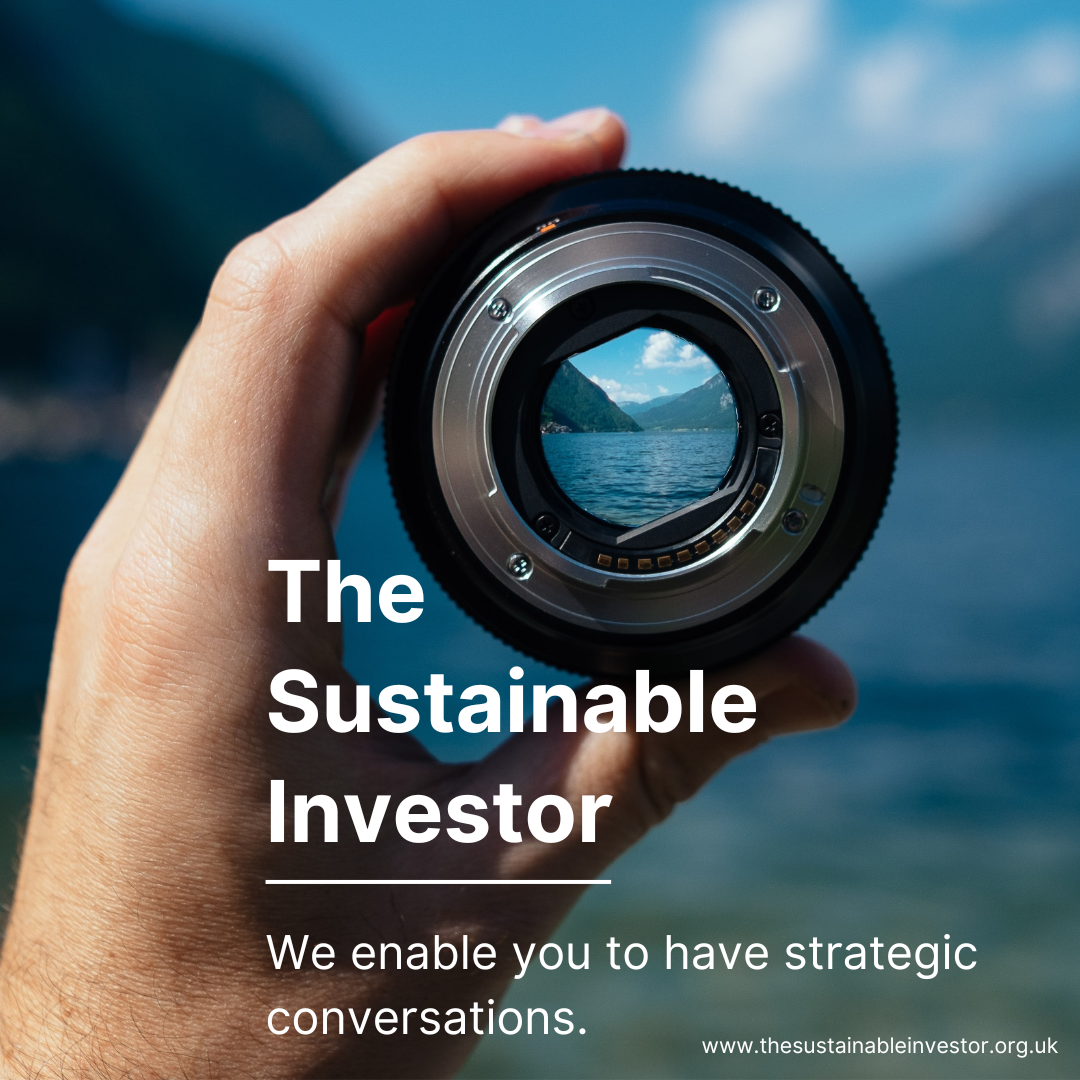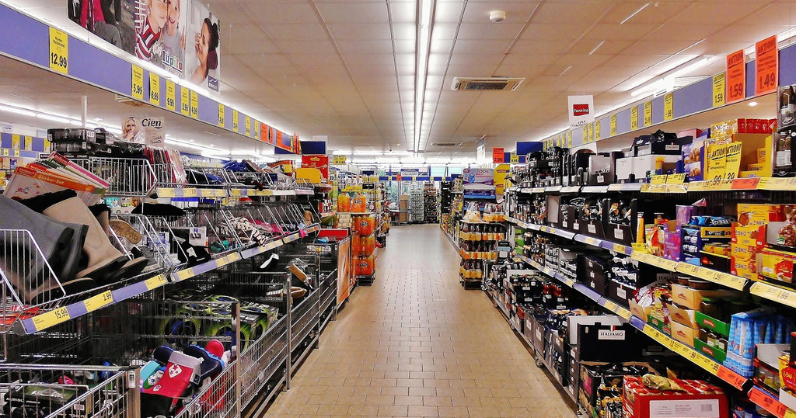
Sunday Brunch: stop right now, thank you very much
Transitions are tough but barriers can be overcome if we take the right sequence of steps.
Transition is hard.
On 9th March 1998, after an impressive, record-breaking run of six consecutive Number 1s, Spice Girl's 7th single, Stop was released, recording during filming of Spice World. A catchy song with a great hook in the chorus, the run looked set to extend to seven. However, Run DMC and Jason Nevins had other ideas. The media leapt upon it as sign that the group was peaking and then on 31st May 1998, Geri Halliwell announced her departure. The four remaining band members were adamant that they would carry on as a group. Ultimately they went their separate ways. Transition is hard(1)
Last Sunday we talked about how preparation for a triathlon is a series of steps which mirrors the transition to a more sustainable world.
From an energy perspective, Michael Liebreich talks about the 'Five Horsemen of the Transition' or the key challenges currently standing in the way of the transition. The good news is that he thinks these challenges are not insurmountable.
"With the right leadership, focus, innovation and resources, however, I’m sure the Five Horsemen can be turned into nothing more than the Five Speedbumps."
Michael Liebreich, Liebreich Associates
For sustainability professionals, understanding that sustainability transitions more broadly require a series of steps, and what those steps are for a particular area or industry, will be crucial in engaging investors and other providers of capital as well as those running businesses both strategically and operationally.
Where solutions to improve sustainability are behavioural, often wholesale changes are so overwhelming as to be rejected outright. Professor Alex Edmans, in a lecture for Gresham College talked about status quo stemming from inertia.
It's often too easy to say 'stop right now, thank you very much'. But we do need to transition.
Let's take a look at some of the barriers that transitional steps can face.
If you want to read the rest and are not already a member...

As Voltaire wrote in La Bégueule, "Le mieux est l'ennemi du bien" which roughly translates as "the perfect is the enemy of the good" - the 'nirvana fallacy'. This is where a solution is dismissed, particularly a stage in a transition because it has some drawbacks.
As content length is getting shorter it forces debates to be binary - something is either good or bad. That also tends to encourage the hunt for the 'silver bullet' solution or the one-size-fits-all. The truth is that some solutions are appropriate in some situations, but not in others. Hydrogen is a good example of that. I even wrote a H2aiku about it:
Hydrogen is good.
Hydrogen economy
is good for all things.
Hydrogen is bad.
Dangerous. Inefficient.
It's bad for all things.
Actually, it is not good or bad. We need it for certain chemical processes including manufacturing ammonia and in making steel, but it is not suitable for home heating.
Another problem is bias, or rather the lack of bias. The trend of mainstream journalism to avoid bias has, in some cases, unintentionally presented scientifically compelling conclusions as open debates.
For example, researchers from Towson University and the University of Wisconsin, studied more than 200 articles published between 2018 and 2020 in 29 different U.S. newspapers, comparing coverage of two issues: the need to reduce food waste and the need to shift to a more plant-based diet. Despite there being strong consensus amongst scientists on the latter issue, newspapers were covering it as an open debate.
The researchers compared this with media coverage of human-caused climate change ten years ago where a similar open debate approach was taken with "climate deniers quoted in the media often [having] financial ties to industries that were trying to avoid efforts to address climate change." More recently public perception has driven that 'openness' of the debate down.
If there is a delay in scientific consensus being accepted by the general public, this could further delay acceptance of a problem and the move to the next step: enacting solutions.
These have the effect of presenting uncertainty and hesitation in the minds of individuals and organisations - 'too many issues, it won't work, let's not do it.' Status quo from inertia.
However, there will always be trade-offs. That doesn't mean something isn't a valid step to take on the journey.
For example, a deposit return scheme to encourage recycling of drinks containers is being introduced in the UK. The aim is ultimately to minimise the amount of plastic waste in particular ending up in landfill or being incinerated and causing harm to the environment. Plastic is often cited as being problematic, however how we use containers is as much a part of the problem as the materials themselves. A lifecycle assessment of drinks containers from Southampton University found that whilst glass and recycled glass bottles are more impactful on the environment than other containers, ALL containers had some impact. As the Southampton study's lead, Alice Brock commented "society needs to move away from single-use beverage packaging in order to reduce environmental harm and embrace the regular everyday use of reusable containers as standard practice." Intelligent dispensing and refillable solutions both in private and public areas are clearly going to be supportive of that. Behaviourally, a recycling scheme is a good transitional step to take.
Sometimes we need to take a series of steps to get to where we ultimately want to be. An example is through the integration of green spaces, such as parks, gardens, and wetlands, into urban areas. There are many benefits including increasing biodiversity, improved air and water quality, a reduction in the heat island effect and enhancing community spirit and overall well-being. By starting small, for example by planting a community garden or creating a green roof on a building, individuals and organisations can demonstrate the benefits, inspire others and that can potentially lead to larger development. The Oasis School Yards projects in Paris developed existing school playgrounds acting as green hubs, reducing the heat island effect of the city, improving flood resilience and encouraged social resilience as community and schools come together.

Small steps can also be a way of engaging and empowering individuals, communities, and organisations. By encouraging people to take action in their own lives and communities, sustainability transitions can become a bottom-up process, rather than a top-down one. This can be especially important for creating buy-in and commitment from individuals, who may be more likely to participate in the transition if they feel that they have a stake in it. One such example is in Germany where IBC Solar partnered with EUECO to develop a digital platform to encourage citizen participation in German solar parks and the generation of green energy.
So transitions are tough and face many barriers. But these can be overcome if we can break the transition down into the right sequence of steps that are needed. We need to engage and bring along all stakeholders. We need finance, scientific, engineering and sustainability skills and, given that ultimately this is about our species long term resilience, leaving the Spice Girls with the final words, "I need somebody with a human touch."
(1) Don't worry, it all turned out well in the end. https://en.wikipedia.org/wiki/Spice_Girls
Something a little more bespoke?
Get in touch if there is a particular topic you would like us to write on. Just for you.
Contact us
Please read: important legal stuff.

